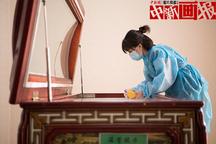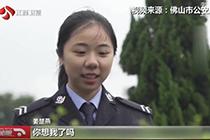 Ӣר�ң����۰�����ʿ�θ������ϡ�һ�����ơ�(2)
Ӣר�ң����۰�����ʿ�θ������ϡ�һ�����ơ�(2)
 ���뻥��(0)
���뻥��(0)����Democracy in Hong Kong Under ��One Country Two Systems'
����16 September 2014
����Dr Tim Summers Senior Consulting Fellow, Asia Programme (based in Hong Kong)
����Beijing��s recent decision on constitutional development in Hong Kong reflects the ��one country two systems�� formula under which Hong Kong retains its own system as part of China. Hong Kong has to decide whether or not to accept the framework for democratic development on offer��
����Beijing��s recent pronouncement about constitutional development in Hong Kong has provoked strong reactions, both in Hong Kong and internationally. The decision, by the Standing Committee of China��s legislature, the National People��s Congress (NPC)�� outlines a framework for the possible selection of the next chief executive (head of government) by universal suffrage in 2017.
����The Hong Kong government has called this an ��historic�� opportunity to introduce an unprecedented degree of democracy into the selection of the city��s leader by all five million registered voters. Many in Hong Kong are unconvinced, highlighting the requirement for candidates to be nominated by at least half of a mainly pro-establishment ��nominating committee�� of 1,200 members. This makes it unlikely candidates opposed to Beijing will appear on the ballot��
����The ball is now in Hong Kong��s court. The next steps are for the Hong Kong government to put together detailed proposals for a process in line with the NPC framework. Two-thirds of members of the legislative council need to approve the proposals in a vote in early 2015. If not, then the process will revert to that of 2012, with the 1,200-strong committee itself voting on who will be put forward to Beijing for formal appointment as chief executive, without any popular vote��
����If a deal can be reached, a universal vote will by definition introduce new elements into Hong Kong politics. Exactly how politics will change is difficult to predict, but five million voters having the final say should make politics more democratic. There are also many details not spelt out by the NPC, including how the nomination process will work, so the next stage of producing detailed proposals may also offer some space for negotiation to maximize the fairness of the selection process��
����The 27 ��pan-democrat�� legislators face the biggest dilemma. Both before and since Beijing announced its decision, most have said they will veto any proposal which does not provide ��genuine�� universal suffrage. Some commentators have therefore suggested that the game is already over �C a two-thirds majority requires support from 47 of the 70 legislators. However, six months is a long time in politics and many people in Hong Kong are still debating the issues. The level of support for the ��Occupy Central�� movement, which has threatened to bring the main business district to a standstill, is also unclear��
����What is driving Beijing��s policy?
����The NPC decision was based on an earlier decision from 2007, which was the first to state that Hong Kong��s leader could be elected by universal suffrage in 2017. Both decisions follow the terms of the 1990 Basic Law, Hong Kong��s mini-constitution, which sets out the requirement for a ��broadly-representative nominating committee����
����More fundamentally, these decisions reflect the ��one country two systems�� formula, devised in the 1980s by then paramount leader Deng Xiaoping to encapsulate Hong Kong retaining its separate system while returning to Chinese sovereignty��
����As set out in the 1984 Sino-British Joint Declaration and repeated most recently in Beijing's controversial White Paper of June 2014, ��one country�� means, amongst other things, that Hong Kong reports directly to the central (national) government in Beijing. An important manifestation of this is that the central government appoints the Chief Executive, though in accordance with both the Joint Declaration and Basic Law this is to be on the basis of ��elections or consultations�� held in Hong Kong (not Beijing). As a result, there is a strong desire on the part of the central government to avoid a scenario where it would not be willing to appoint the individual thus selected. This is what lies behind the nomination process set out in the latest NPC decision��
����It is presumably also the reason why the NPC reaffirmed that the successful candidate must ��love China and love Hong Kong��. This is somewhat ambiguous, but it is worth recalling Deng Xiaoping��s definition of patriotism when talking about Hong Kong in June 1984: ��respect for the Chinese nation, sincere support for the motherland��s resumption of sovereignty over Hong Kong, and a desire not to impair Hong Kong��s prosperity and stability����
����On ��two systems��, the latest decision actually highlights substantial differences between Hong Kong and the rest of China. Allowing a popular vote for an executive position (above village level) is unprecedented in the People��s Republic. Nor do people in mainland China enjoy the sort of consultation on and debate about possible change in their political system that has been taking place in Hong Kong��
����Agreeing to allow a popular vote in Hong Kong for the chief executive therefore does not imply a tightening of Beijing��s grip, but rather manifests the development of the second system, whilst other elements of the framework set out by the NPC reflect the reality of ��one country��. This is consistent with a conclusion that Beijing��s fundamental policy towards Hong Kong remains the continued application of ��one country two systems��, rather than a tightening (or loosening) of policy��
����Can it work?
����The political problem is that this does not appear to be enough for many in Hong Kong. The pan-democrat camp in particular has called for universal suffrage in accordance with ��international standards��. But proposals which they put forward in earlier consultations that departed from the provisions of the relevant Basic Law article on selecting the chief executive have been summarily rejected by Beijing��
������One country two systems�� is the framework for the constitutional reform on offer. It has always required compromise. Whether it can continue to work is the decision facing Hong Kong, as the government and legislature debate and eventually vote on detailed constitutional reform proposals over the coming months��
>�۰����ž�ѡ��
- �������ȡ����գ��������̨�ܲ�¼��29.4�ȸ���
- ���۸�60�ڽ���ά�۳��� �����Ż���ֻΪ����
- ���������ڼ���۶���¥�г��� �ɽ���վ��˫λ��
- ���Ӹ۴���è��ֵ��ֳ�� ��ۺ����ݹ���è��
- ���������ڳ�150���˴γ������ ���ճ��뾳�˴δ��¸�
- �������조�Ļ������ա���Ļ �����������Ļ�������ʹ
- ����۸�����ڼ䡰һ��һ���������������۸�˫����
- ����ȡ��������������Ʒ ���һ���մ�������8000��Ԫ






















